WR2 MITSUBISHI ELECTRIC CITY MULTI FOR SALE BRAND NEW
NEW STOCK WR2 MITSUBISHI ELECTRIC CITY MULTI NEW MIX OF KIT
MODEL QTY.
PQRY-P250YEM-A, R407C 1 UNIT
PQY-P01YGM-A, R410A 2 UNIT
PQHY-P500YGM, R410A 3 UNIT
PQFY-P250, R410A ( HOT WATER ) 3 UNIT
PQFY-P140, R410A ( HOT WATER ) 2 UNIT
IF INTERESTED PLEASE CONTACT
Frank Roche
email. froche@frankrocheservices.ie
Tel. No. 02243324
Drift Aid
Our driver Fionn Roche got top spot in Drift Aid charity event, CUMH
at Adventure Park at Kartworld Cork.
With €10,000 raised for a great cause!!
Thanks to all the drivers for putting on a great show, all the spectators for coming along,
and also to Irish Drift Championship, all the media, the incredible staff, marshals, judges and individuals that made all this happen today,
Also big thank you to Team Shanahan for keeping the car running 100% on the track all day .


Crest Solutions WallingsTown Little Island Cork
Just Completed Another Successful Project Heating-Cooling + Heat Recovery ventilation to new office lay out
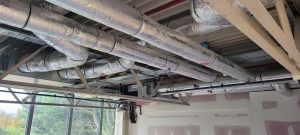
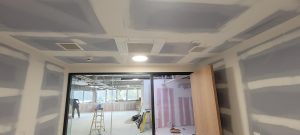
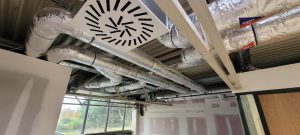
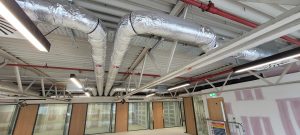
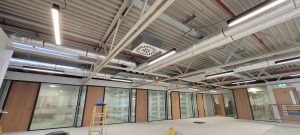
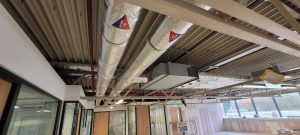
News- New Sponsorship For The Irish Drifter Fionn Roche
We are at the end of our first year drifting and proud to have been a sponsor for Fionn Roche , It was a great year .
We’re looking forward to the 2022 season and Fionn will be pushing hard for the top spot.










COVID19 HVAC Best Practices
COVID – 19 Policy
We at Frank Roche services hope that you, your staff & your families are all staying safe & healthy. While we may not be as actively engaged and in contact with you as much as we normally are, here at Frank Roche Services we are continuing to explore ways to drive value for you. This in mind we are introducing a new way to improve and de contaminate all H Vac Heating and Cooling, Heat recovery and ventilation systems we generally maintain at your premises.
We as a company are hoping to help you our valued customer/clients to improve and help your staff work in a safe and healthy environment. There are a number of additional system changes we can carry out that will enhance and improve all work environments, along with all other W.H.O. guidelines.
We are using an evaporator and plastic cleaning agent called JAB, this will clean all the evaporator coil and surrounding areas and drain pan of the indoor units that air passes through which is crucial to keep as clean as possible. We would propose the following measures which will improve the work areas for staff during this time to eradicate the spread of this virus to fellow workers.
Increase air supply and exhaust ventilation
In buildings with mechanical ventilation systems extended operation times are recommended. Change the clock times of system timers to start ventilation a couple of hours earlier and switch off later than usual. Better solution is even to keep the ventilation on 24/7, possibly with lowered (but not switched off) ventilation rates when people are absent. Considering a springtime with small heating and cooling needs, the recommendations above have limited energy penalties, while they help to remove virus particles out of the building and to remove released virus particles from surfaces.
The general advice is to supply as much outside air as reasonably possible. The key aspect is the amount of fresh air supplied per person. If, due to smart working utilization, the number of employees is reduced, do not concentrate the remaining employees in smaller areas but maintain or enlarge the spacing among them in order to foster the ventilation cleaning effect. Heating and cooling systems can be operated normally as there are no direct implications on COVID- 19 spread. Usually, any adjustment of set points for heating or cooling systems is not needed. There is no evidence that Covid-19 can spread through air-conditioning systems, according to the National Centre for Infectious Diseases (NCID)
Exhaust ventilation systems of toilets should always be kept on 24/7, and make sure that under- pressure is created, especially to avoid the fecal-oral transmission.
Use more window airing
General recommendation is to stay away from crowded and poorly ventilated spaces. In buildings without mechanical ventilation systems it is recommended to actively use operable windows (much more than normally, even when this causes some thermal discomfort). Window airing then is the only way to boost air exchange rates.
You could open windows for 15 min or so when entering the room (especially when the room was occupied by others beforehand). Also, in buildings with mechanical ventilation, window airing can be used to further boost ventilation. Open windows in toilets with passive stack or mechanical exhaust systems may cause a contaminated airflow from the toilet to other rooms, implying that ventilation begins to work in reverse direction.
Open toilet windows then should be avoided. If there is no adequate exhaust ventilation from toilets and window airing in toilets cannot be avoided, it is important to keep windows open also in other spaces in order to achieve cross flows throughout the building.
Safe use of heat recovery sections in (AIR HANDLING UNITS) external generally
Under certain conditions virus particles in extract air can re-enter the building. Heat recovery devices may carry over virus attached to particles from the exhaust air side to the supply air side via leaks. In rotary heat exchangers (including enthalpy wheels) particles deposit on the return air side of the heat exchanger surface after which they might be re suspended when heat exchanger turns to the supply air side. Therefore, it is recommended to (temporarily) turn off rotary heat exchangers at present.
If leaks are suspected in the heat recovery sections, pressure adjustment or bypassing can be an option in order to avoid a situation where higher pressure on extract side will cause air leakages to supply side. Virus particle transmission via heat recovery devices is not an issue when a HVAC system is equipped with a twin coil unit or another heat recovery device that guarantees 100% air separation between full dump and supply air side. This scenario is fine and should be operational as much as possible.
All HRU’s we supply, and install are fully guaranteed to have 100% air separation and should be operated.
Most AHU s should be able to adjust and have full dump air and full supply air with no cross over from one side to the other.
Room air cleaners can be useful in specific situations
Room air cleaners effectively remove particles from air which provides a similar effect compared to ventilation. To be effective, air cleaners need to have at least HEPA filter efficiency, or room ionizers with up to 6 filter sections in them to clean the air up to 99.9 % for up to 6 months depending on usage before filter change.
We can supply 2 well-known Brands of commercial air Purifiers, Daikin and Camfil both will remove 99.9% of all bacteria and Viruses and each one unit can clean the air in areas up to 45 square meters.
Toilet lid use instructions
If toilet seats are equipped with lids it is recommended to flush the toilets with closed lids in order to minimize the release of droplets and droplet residues from plumes in the air. It is important that water seals work all time. Therefore, organise that building occupants are instructed to use the lids.
We know COVID-19 (Coronavirus) can be spread the following ways:
- directly, through contact with an infected person’s body fluids (for example, droplets from coughing or sneezing)
- indirectly, through contact with surfaces that an infected person has coughed or sneezed on and which are, therefore, contaminated with the virus
There is no evidence that Covid-19 can spread through air-conditioning systems, according to the National Centre for Infectious Diseases (NCID) Although there is no evidence of airborne transmission through ventilation or air-conditioning units, increasing the cleaning frequency of these units should be considered according to authorities.
Ventilation and Air-Cleaning Strategies
Because small particles remain airborne for some time, the design and operation of clean HVAC systems that move air can help prevent disease transmission in several ways, such as by the following:
- Supplying clean air to susceptible occupants
- Containing contaminated air and/or exhausting it to the outdoors
- Diluting the air in a space with cleaner air from outdoors and/or by filtering the air
- Cleaning the air within the room
Ventilation represents a primary infectious disease control strategy through dilution of room air around a source and removal of infectious agents. Unfortunately, natural ventilation, such as that provided by windows, is not covered as a method of infection control by most ventilation standards and guidelines due to unknown external pollutants. We will attach a full specification on both above Air cleaners that can be added to any areas in your building to further help to eradicate this covid-19
Costs can be provided for Air Cleaners on request.
Please contact our service Department if you require any further assistance or information that we can help you operate your Business in safer cleaner environment.
Take Care and Stay Safe.
COVID-19 Service Department
Due to COVID-19 our service department are working remotely.
If you need a call or need to contact the service department please call 0858754312 or email Katie on kroche@frankrocheservices.ie
COVID-19 Policy
COVID – 19 Policy
We know COVID-19 (Coronavirus) can be spread the following ways:
- directly, through contact with an infected person’s body fluids (for example, droplets from coughing or sneezing)
- indirectly, through contact with surfaces that an infected person has coughed or sneezed on and which are, therefore, contaminated with the virus
There is no evidence that Covid-19 can spread through air-conditioning systems, according to the National Centre for Infectious Diseases (NCID)
Although there is no evidence of airborne transmission through ventilation or air-conditioning units, increasing the cleaning frequency of these units should be considered according to authorities.
Ventilation and Air-Cleaning Strategies
Because small particles remain airborne for some time, the design and operation of clean HVAC systems that move air can help prevent disease transmission in several ways, such as by the following:
- Supplying clean air to susceptible occupants
- Containing contaminated air and/or exhausting it to the outdoors
- Diluting the air in a space with cleaner air from outdoors and/or by filtering the air
- Cleaning the air within the room
Ventilation represents a primary infectious disease control strategy through dilution of room air around a source and removal of infectious agents.
Unfortunately, natural ventilation, such as that provided by windows, is not covered as a method of infection control by most ventilation standards and guidelines due to unknown external pollutants.
Temperature and Humidity
Many HVAC systems can control indoor humidity and temperature, which can in turn influence transmissibility of infectious agents.
Nessan House
Nessan House
FEXCO NOVEMBER 2019
FEXCO NOVEMBER 2019
Fexco Almost Complete October 2019
Fexco Almost Complete October 2019




